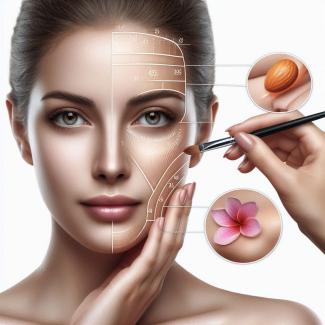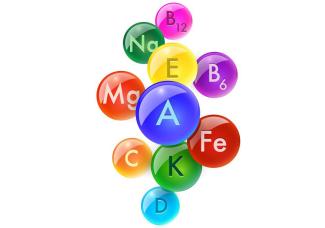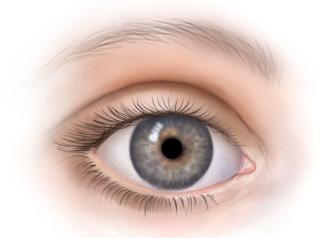
The desire for firm, youthful skin is universal, and maintaining skin elasticity is a key aspect of achieving this. As we age, the skin naturally loses its tightness due to various intrinsic and extrinsic factors, such as genetics, sun exposure, lifestyle habits, and environmental stressors. While aging is inevitable, scientific advancements have provided us with numerous strategies to slow down this process and improve skin firmness. This comprehensive guide will delve into the science behind skin elasticity, why it's important, and the latest evidence-based methods for enhancing skin tightness. We’ll explore the physiological mechanisms, health impacts, recovery techniques, best practices, appropriate home care, nutritional approaches, available commercial products, and the testing methods used to assess skin firmness.
How to Make Our Skin Tighter?
To understand how to make skin tighter, it’s important to grasp the structure of the skin and the factors that contribute to its elasticity. The skin is composed of three layers: the epidermis (outer layer), dermis (middle layer), and hypodermis (deepest layer). Skin tightness primarily relates to the dermis, which contains collagen, elastin, and glycosaminoglycans (GAGs)—the key components that give skin its firmness and resilience.
- Collagen: This protein provides structural support to the skin, acting as a scaffold that maintains skin shape and strength. As we age, collagen production decreases, and existing collagen fibers break down, leading to sagging skin.
- Elastin: This protein is responsible for the skin’s ability to stretch and snap back into place. Like collagen, elastin production declines with age, resulting in decreased skin elasticity.
- Hyaluronic Acid (HA): A naturally occurring substance in the body that helps retain moisture. HA is essential for keeping the skin plump and hydrated, which contributes to a firmer appearance.
To tighten the skin, one can focus on stimulating collagen and elastin production while maintaining adequate moisture levels. Methods to achieve this include:
- Topical treatments: Products containing retinoids, peptides, and antioxidants can stimulate collagen synthesis and protect against further damage.
- Non-invasive procedures: Laser treatments, radiofrequency, and ultrasound therapy have been shown to promote collagen production by heating the dermis without damaging the outer layers of the skin.
- Invasive treatments: Surgical options, such as facelifts, are considered the most direct method for addressing significant skin laxity, though they come with risks and recovery time.
Scientific Insight
A study published in Dermatologic Surgery found that radiofrequency treatment increased dermal collagen density, resulting in significant skin tightening and wrinkle reduction over time. Another study in the Journal of Cosmetic Dermatology demonstrated the efficacy of retinoid-based creams in improving skin elasticity by boosting collagen synthesis.
Everything You Need to Know About Skin Impact
Skin firmness is not just about appearance—it plays a critical role in overall skin health. Firm skin acts as a protective barrier, preventing the intrusion of harmful bacteria, pollutants, and other environmental aggressors. When skin loses its tightness, it becomes more prone to developing fine lines, wrinkles, and even deeper creases that can compromise the skin's protective function.
Discover the Secrets of Tight Skin
The secret to maintaining tight skin lies in a combination of lifestyle factors, skincare products, and sometimes clinical interventions. The following are key elements in preserving and enhancing skin tightness:
- Antioxidant Protection: UV radiation from the sun is one of the primary causes of collagen breakdown. Using broad-spectrum sunscreen with a high SPF can prevent UV damage, while topical antioxidants like vitamin C, E, and ferulic acid can neutralize free radicals that degrade collagen and elastin.
- Hydration: Proper hydration is essential for skin tightness. Topical products with hyaluronic acid, ceramides, and glycerin can lock in moisture and keep skin plump. Drinking enough water also supports skin hydration from within.
- Healthy Diet: A diet rich in fruits, vegetables, and lean proteins provides the vitamins and amino acids necessary for collagen production and skin repair. Omega-3 fatty acids, in particular, have been shown to improve skin elasticity by maintaining the lipid barrier.
- Regular Exercise: Physical activity increases blood flow to the skin, providing it with essential nutrients and oxygen, which supports the maintenance of skin structure.
How Does Tight Skin Affect Health?
Firm skin is more than just an aesthetic goal—it is a sign of overall skin health. The skin serves as the body’s first line of defense against environmental hazards, infections, and injuries. When the skin is firm and intact, it better performs its barrier functions. Conversely, loose or sagging skin may indicate a weakening of this protective barrier, making the skin more susceptible to damage and infection.
A study in The Journal of Investigative Dermatology revealed that age-related skin laxity can lead to compromised skin barrier function, resulting in increased transepidermal water loss (TEWL) and a higher susceptibility to infections and environmental stressors. This underscores the importance of maintaining skin tightness for both aesthetic and functional purposes.
Effective Recovery Methods
Skin laxity can occur due to aging, weight fluctuations, pregnancy, or environmental damage. Fortunately, several recovery methods are effective in restoring firmness to the skin:
- Radiofrequency Therapy (RF): RF uses energy to heat the skin and stimulate collagen production, resulting in tighter skin over time. A study in Lasers in Surgery and Medicine found that RF treatments improved skin laxity by inducing neocollagenesis (new collagen formation).
- Ultrasound Therapy: High-intensity focused ultrasound (HIFU) penetrates deeper layers of the skin to stimulate collagen regeneration. Studies in The Journal of Clinical and Aesthetic Dermatology have demonstrated that HIFU is effective for improving skin tightness in areas such as the face, neck, and décolletage.
- Microneedling: By creating micro-injuries in the skin, microneedling promotes the skin’s natural healing process, stimulating collagen and elastin production. Studies show that combining microneedling with radiofrequency or platelet-rich plasma (PRP) can enhance results.
- Chemical Peels: These treatments remove the outermost layers of the skin, encouraging the growth of new, tighter skin. Studies show that deeper peels can lead to significant improvements in skin laxity.
Best Practices to Use
When aiming to improve skin tightness, consistency is key. Here are some best practices to adopt:
- Use Retinoids: Retinoids (such as tretinoin) are among the most effective topical treatments for increasing collagen production and reducing the appearance of fine lines and wrinkles. Start with a lower concentration to avoid irritation and gradually increase as tolerated.
- Incorporate Antioxidants: Vitamin C and E serums can help combat oxidative stress and prevent collagen degradation. Apply them in the morning for maximum UV protection.
- Sunscreen, Sunscreen, Sunscreen: The most important preventative measure for maintaining firm skin is the daily use of a broad-spectrum sunscreen. This prevents UV-induced collagen breakdown.
- Stay Hydrated: Keep the skin well-moisturized with products containing hyaluronic acid, glycerin, or ceramides, and ensure you are drinking enough water throughout the day.
Home Care Measures and How to Implement Them
Home care plays a crucial role in maintaining skin tightness. Here’s how to implement effective routines:
- Daily Cleansing and Exfoliation: Use a gentle cleanser to remove impurities without stripping the skin. Incorporate mild exfoliation (1-2 times a week) with a chemical exfoliant (like glycolic or lactic acid) to promote cell turnover and maintain smooth, tight skin.
- Topical Treatments: Apply a retinoid in your nighttime routine to stimulate collagen production. Pair it with a moisturizer to minimize irritation and maintain the skin barrier.
- Facial Massage: Regularly massaging the face can improve circulation and promote lymphatic drainage, giving the skin a more lifted and firm appearance. Tools like jade rollers and gua sha stones can enhance the benefits.
- DIY Masks: Ingredients like egg whites, honey, and avocado are rich in proteins and vitamins that can temporarily firm and moisturize the skin.
Can I Get It Through Food, or Where Can I Get It?
Nutrition plays a significant role in skin health. Certain foods contain the building blocks for collagen, elastin, and hyaluronic acid, which are essential for maintaining skin firmness:
- Collagen-Rich Foods: Bone broth is a rich source of collagen, which can help support the skin’s structure when consumed regularly.
- Vitamin C-Rich Foods: Vitamin C is crucial for collagen synthesis. Citrus fruits, strawberries, and bell peppers are excellent sources.
- Omega-3 Fatty Acids: These healthy fats help maintain the skin’s lipid barrier, keeping it firm and hydrated. Fatty fish like salmon and flaxseeds are good sources.
- Zinc and Copper: These minerals are involved in collagen production and skin repair. Foods like shellfish, nuts, seeds, and whole grains provide these nutrients.
Commercial Products Available in the Market
There are numerous products on the market designed to improve skin tightness, including:
- Retinoids: Prescription-strength retinoids like tretinoin (Retin-A) are considered the gold standard for collagen stimulation.
- Peptide Creams: Peptides are small proteins that signal skin cells to produce more collagen, making them popular ingredients in firming creams.
- Hyaluronic Acid Serums: These products can provide an immediate plumping effect by drawing moisture into the skin.
- Firming Masks: Masks containing collagen, peptides, or hyaluronic acid can offer temporary skin-tightening effects.
How Do We Do the Test?
Assessing skin tightness typically involves both subjective and objective methods. Dermatologists use tools like:
- Cutometer: This device measures skin elasticity by applying suction to the skin and measuring how long it takes for the skin to return to its normal state.
- Ultrasound Imaging: High-frequency ultrasound can be used to visualize the dermal layers and assess the density of collagen and elastin.
- Clinical Photography: High-resolution images track changes in skin tightness and texture over time.
These tests are usually performed in a clinical setting but may also be available in specialized skincare clinics.
Maintaining firm, tight skin requires a multifaceted approach that includes both preventative and restorative measures. By understanding the science behind skin elasticity and incorporating effective treatments—ranging from home care to clinical procedures—you can achieve and maintain youthful, firm skin. Nutritional support, a consistent skincare regimen, and appropriate interventions will not only improve skin appearance but also enhance its overall health and function.






